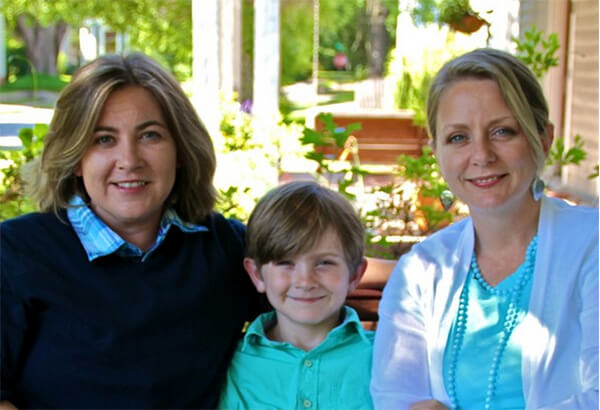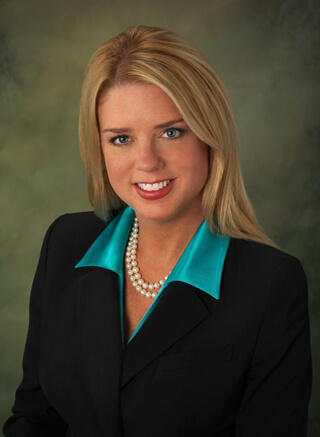A unanimous three-judge panel of the Atlanta-based 11th Circuit Court of Appeals has ruled that a gay plaintiff in a civil rights lawsuit against the City of Key West and one of its police officers is entitled to a new trial because the judge in his case refused to allow potential jurors to be questioned about any anti-gay bias they might have.
The October 5 ruling involves Raymond Berthiaume’s claims against the city and Police Lieutenant David Smith stemming from the plaintiff’s arrest by Smith in October 2013. The trial jury ruled against Berthiaume.
Berthiaume was in Key West to attend the Fantasy Fest Parade together with his then-partner and now-husband, Jhon Villa, his friend Corey Smith, and his former partner, Nelson Jimenez. After the parade, the group remained in the area for a street party and by the early morning hours, all but Jimenez were ready to go home. Jimenez remained in a bar while the others returned to their car, parked on a side street.
11th Circuit allows gay man new trial in claims against Key West police
After waiting by the car for some time, Berthiaume went back to the bar to get Jimenez. With his hand on Jimenez’s upper arm, Berthiaume led him out of the bar, but then Jimenez grabbed the car keys and twisted out of Berthiaume’s grasp. He ran down an alleyway with Berthiaume in pursuit.
Lieutenant Smith and several other police officers spotted the two men, and thinking they were witnessing a fight went after Berthiaume and Jimenez. Smith testified that Berthiaume appeared to be swatting and grabbing at Jimenez with both hands as Jimenez tried to pull away, but another officer who testified said that the only physical contact he saw was Berthiaume’s grasp on Jimenez’s upper arm as he attempted to bring him back to the car. Testimony differed as to whether Berthiaume was running or walking after Jimenez.
When Smith caught up with Berthiaume, he pushed him in the shoulder to stop him. Berthiaume fell to the ground, suffering a fractured wrist and jaw, both of which ultimately required surgery. Smith questioned Jimenez, who thanked him for intervening but said nothing wrong had happened and that he did not want to press charges. He also told Smith that the men were former partners and were trying to get back together.
Smith arrested Berthiaume anyway, based on his belief that this was a domestic dispute. The police officer said that the standard practice in Key West is to arrest a suspected domestic abuse assailant to assure that the two parties are separated for at least one night.
Smith also testified that it was appropriate to arrest Berthiaume despite Jimenez’s refusal to press charges because he had seen Berthiaume assaulting the other man. But after investigating the situation, the local prosecutor decided to drop the charges against Berthiaume, who then filed suit against Smith and the City of Key West.
Taking his suit to federal court, Berthiaume claimed violations of federal civil rights laws as well as Florida state law, alleging claims of excessive force, false arrest, false imprisonment, battery/ unnecessary force, and malicious prosecution. There was a three-day jury trial.
During jury selection, the judge questioned potential jurors about any bias they had against police, but declined Berthiaume’s request that they also be questioned about any bias they had against gay people.
After the jury returned a verdict in the defendants’ favor, Berthiaume moved for a new trial, arguing he was deprived of a fair trial before an impartial jury. He argued that many people are still biased or prejudiced against gay people. In a case such as his, involving both a gay plaintiff and gay witnesses, he argued, it was necessary for the court to inquire into prospective jurors’ potential anti-gay bias.
The trial judge denied that motion, and Berthiaume appealed.
The 11th Circuit appeals panel pointed to a 1981 Supreme Court decision holding that the Constitution might require judges to ask questions about racial bias during jury selection under “special circumstances” where racial issues are “inextricably bound up with the conduct of the trial” and there are “substantial indications” jurors might be affected by racial prejudice. In that criminal case, the Supreme Court said that the failure to ask such questions would lead to reversal of the conviction if circumstances indicated a reasonable possibility that racial prejudice might have influenced the jury.
Building on that precedent, the 11th Circuit, in an unpublished 2014 decision, ruled that failure to inquire into anti-gay bias could also be grounds for reversing a criminal conviction. That case involved a gay man charged with possession of child pornography. Police investigators examining his computer also found evidence that the defendant sought gay men for sex on the Internet, including photos of him engaged in sex with other men. The trial judge refused to exclude that evidence, asserting it was relevant to the child pornography charges, but also declined to allow jurors to be asked about anti-gay bias. The man was convicted, after the prosecution “repeatedly paraded before the jury” the evidence regarding the defendant’s sexual activities with other men, according to the 11th Circuit, which concluded that it was reasonably possible that anti-gay bias had affected the verdict. It ordered a new trial.
“Here,” as in the earlier case, wrote the court, “Berthiaume’s sexual orientation and that of his witnesses became ‘inextricably bound up with the issues to be resolved at trial.’” Witnesses at the trial, the court continued, “repeatedly testified about Berthiaume’s romantic relationships with Jimenez and Villa. Indeed, in explaining why he felt it necessary to arrest Berthiaume despite Jimenez’s refusal to press charges, Lieutenant Smith explained that victims are often reluctant to press charges in ‘domestic situations’ such as these because they have mixed emotions about the perpetrator.”
Though the judge asked if the jurors could be impartial, the appeals court thought this was “not calculated to reveal latent prejudice” regarding gay people. The jury was not informed during voir dire that the plaintiff and many of the witnesses were gay, so they would have no reason to volunteer any information about anti-gay bias in response to the trial judge’s general questions, in the appeals panel’s view. “The risk that latent, undiscovered prejudices may have influenced the jury’s verdict is substantial,” the panel wrote.
The appeals court concluded that the district court “abused its discretion by failing to inquire about prejudice on the basis of sexual orientation during voir dire.” Berthiaume, the panel found, deserved to have the trial verdict reversed.


























